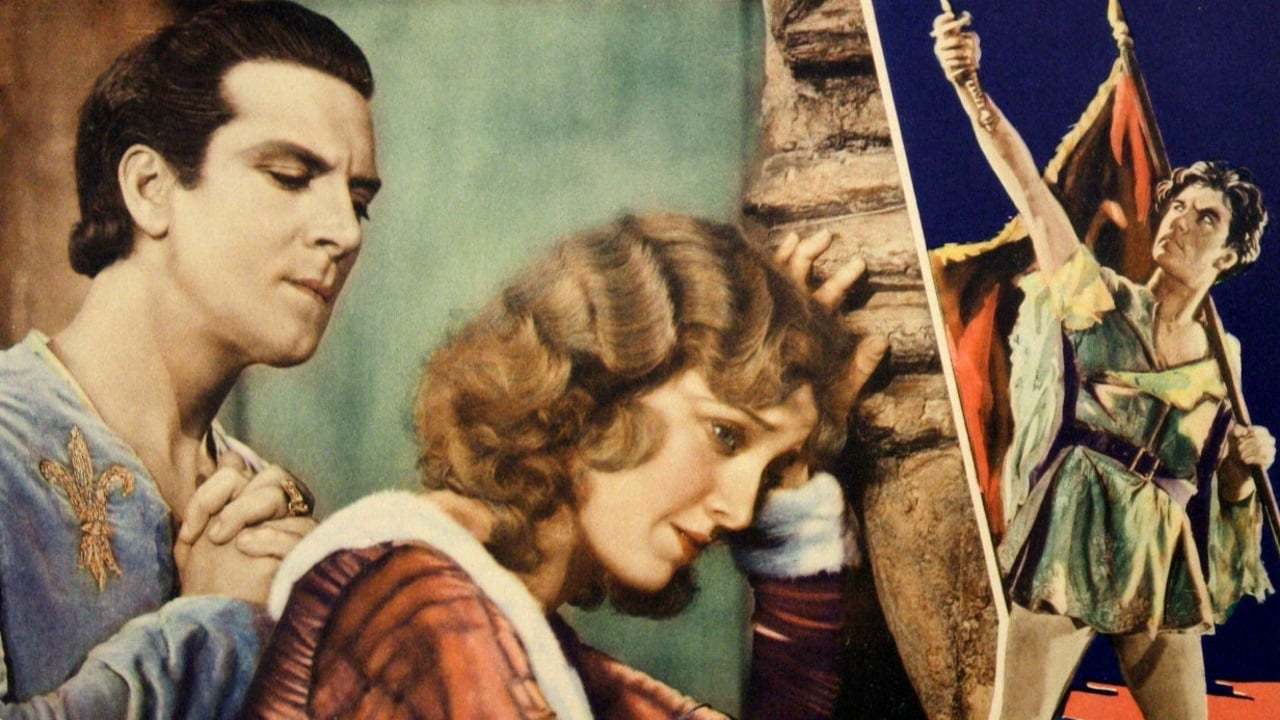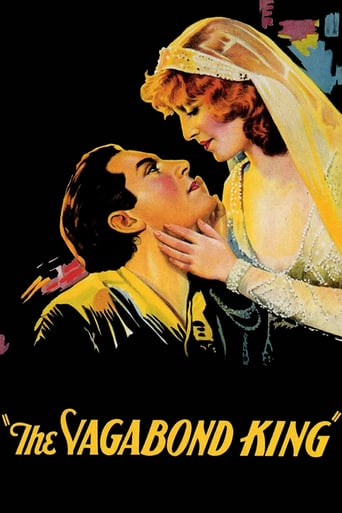

This is a terrible early talkie with a flamboyant 19th century ham performance by Dennis King in the lead and a nondescript one from Jeannette MacDonald. It was filmed entirely in 2 strip Technicolor, which makes up for some of its failings. A restored print is housed at UCLA and it is the only known surviving color print. The elaborate art direction deservedly earned an Oscar nomination.It is available on DVD from Loving the Classics, which uses an old battered 16 mm black and white television print (MCA-TV), which is 3/4 screen, blurry, washed out and with poor sound. The silence surrounding the dialogue is full of white noise.There is the lovely score - MacDonald has three numbers: Someday, Only A Rose and Love Me Tonight.Songs:Act One: 1:08:10King Louis - King Hymn - Chorus SOMEDAY – sung by MacDonald If I Were King - King What France Needs - King Song of the Vagabonds – King ONLY A ROSE – sung by MacDonald, joined at end by King SOMEDAY – reprise – sung by MacDonald Huguette's Waltz - sung by Roth LOVE ME TONIGHT – sung by MacDonald and KingAct Two: 36:30Pool Procession - Chorus Song of the Vagabonds – reprise – King Requiem – Chorus ONLY A ROSE – reprise finale – sung by Macdonald and KingThis is for die-hard fans of Rudolf Friml (composer) and Jeannette MacDonald.MacDonald scenes: 11Act One: Church Interior, Street, King's Observatory, Observing Villon's transformation, Palace Walk, Balcony Scene, Observing Villon and Herald from Burgundy; Act Two: Garden, Huguette's Death Scene, Church, Gallows.
... View MoreDoes anyone know when shooting on this film started? I know that films in this era took only a short time to film. Was this one standard in production, or did it take longer? Anyone who knows the background of this film, I would like to talk to you. I don't have anything else to say. So, in order to reach the ten lines I have to add ballast So, this is ballast Any information is appreciated Any hints on how I might view this film in Technicolor are appreciated. I think this may be one of those films held hostage. Why those who love these films, preserve them, restore them, save them, object so strenuously to people seeing the results of their efforts.Thank you.
... View MoreI was 8 in 1930 so I saw it when it came out and it was exciting and even had a bit of color in it at the end; which no one had seen before. So from that vantage point, I love the fighting, right wins in the end, and huge crowd fighting. Where could an 8 year old see this? Frimyl isn't a total loss either. Remember there are only Friml, DeKoven, Herbert and Romberg in America when it comes to operettas.
... View MoreThis 1930 talkie is a bit creaky and director Berger doesn't seem to have the skills to really bring it to life. Still, one can see the great production values, the sets, costumes -- the staging is often quite impressive and the camera has occasional fluidity. MacDonald is singing in what I refer to as the "early Jeanette voice" -- not as full and rich as in her MGM films, but still lovely and sweet on the high notes. She seems to still be learning her screen acting technique (this is only her second film) -- she's not the great emotional actress she became later on. I imagine if one could see this film in the original two-toned technicolor it could be quite mesmerizing. Dennis King is a bit strident in the lead. Lillian Roth has the look of Huguette, but doesn't have the style of singing to pull of "The Vagabond Waltz". Highlights and Jeanette's renditions of "Only and Rose" and "Someday".
... View More